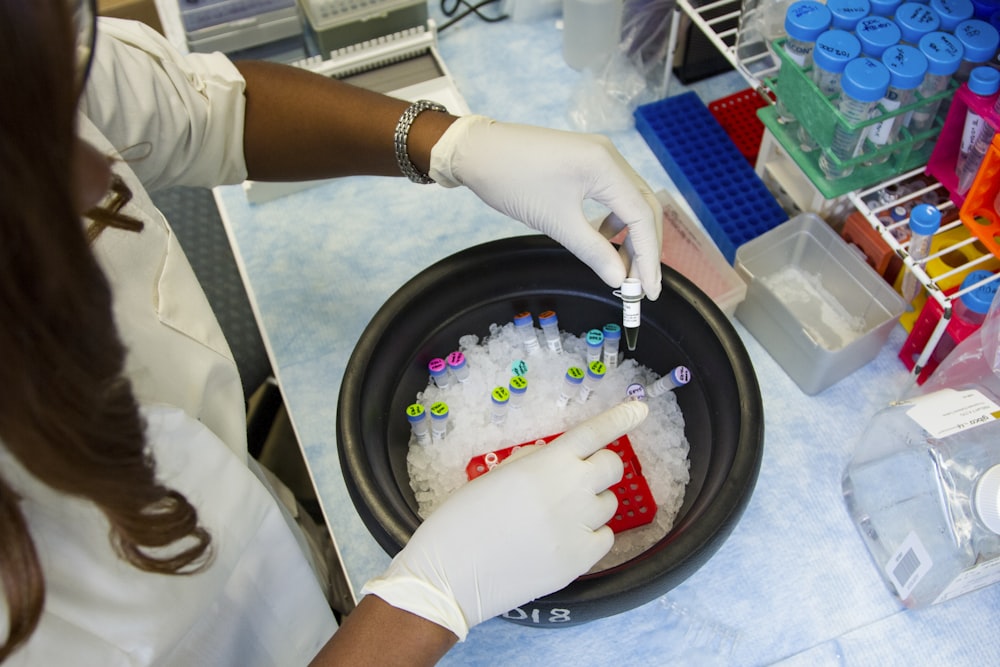Week In Review: Keymed Completes $378 Million IPO In Hong Kong For Antibody Drugs
Image Source: Unsplash
Deals and Financings
- Keymed Biosciences (2162.HK) of Chengdu completed a $378.5 million Hong Kong IPO to develop its portfolio of antibody candidates (see story). The company priced the IPO at the top end of the range, and its shares rose 28% in its first trading session. Founded in 2016, Keymed is developing nine products for autoimmune and cancer indications. It has developed an innovative antibody discovery platform consisting of monoclonal antibodies, antibody drug conjugates, and bispecific antibodies that use its proprietary T cell engager bispecific antibody platform.
- dMed-Clinipace, a China-US full-service clinical CRO, completed a $50 million Series C+ financing (see story). In April of this year, dMed and Clinipace announced their merger, which created a global company offering CRO services for oncology and rare diseases, with expertise in clinical development, regulatory, pharmacovigilance, and clinical analytics. The C+ round, which will help finance the merger, was led by Springhill Fund, with contributions from Rock Springs Capital and Superstring Capital. d-Med is headquartered in Shanghai and Clinipace in North Carolina.
- Shanghai I-Mab (IMAB) announced two partnerships to develop oncology candidates with China biopharmas that offer novel discovery technologies (see story). The company will work to develop new therapeutics with Immorna, a Hangzhou mRNA biotech company, and neoX Biotech, a Beijing AI-based R&D biotech. I-Mab will use Immorna's self-replicating mRNA platform, and it will identify up to 10 novel biologic candidates based on neoX's proprietary AI algorithm. Earlier this year , I-Mab announced collaborations with Complix for cell-penetrating antibodies and Affinity for masking antibodies.
- Abbisko Therapeutics of Shanghai out-licensed greater China rights for ABSK021 to Sperogenix (Shanghai) MedTech (see story). Sperogenix will develop the candidate only for non-oncology rare neurological diseases indications in China, with amyotrophic lateral sclerosis (ALS) as the first target. Abbisko will receive upfront and milestone payments as well as royalties on annual net sales from Sperogenix, while it continues to hold rights to the candidate for oncology diseases. ABSK021 is an oral, selective colony-stimulating factor 1 receptor (CSF-1R) antagonist.
Trials and Approvals
- SciClone Pharma (6600.HK), a Shanghai in-licensing company, filed a China BLA for Danylza® to treat high-risk neuroblastoma (see story). In late 2020, SciClone announced a $120 million agreement to acquire China rights for two neuroblastoma therapies from New York's Y-mAbs. In the US, Danylza® is approved to treat pediatric patients one year of age and older along with adult patients who have relapsed or refractory high-risk neuroblastoma in the bone or bone marrow. Danylza® is administered along with granulocyte-macrophage colony-stimulating factor (GM-CSF).
- Jiangsu Nhwa Pharma (002262.SZ) has enrolled the first patient in a Phase III trial for Olinvyk (oliceridine) injection, a novel IV analgesic (see story). Nhwa in-licensed China rights to the painkiller from Trevena (TRVN), a Philadelphia company. Olinvyk, which was approved in the US in 2020, is an intravenous opioid analgesic indicated for acute pain that is not treated by alternative drugs. Founded in 1978, Nhwa is a China pharma focused exclusively on CNS drugs. Its products address anesthesiology, psychiatry, and neurology needs.
- Harbour BioMed reported positive topline results from a China Phase II trial of batoclimab in patients with myasthenia gravis (gMG), an autoimmune disease (see story). Batoclimab is a fully human anti-FcRn mAb that blocks FcRn-IgG interactions, accelerating the degradation of autoantibodies. Harbour BioMed expects the candidate will treat pathogenic IgG-mediated autoimmune diseases. The trial was the first to show that FcRn drugs were effective and safe in a China population. Harbour Biomed is a novel drug discovery/development company with operations in the US, Rotterdam, and Suzhou.
- Eucure Biopharma, a Beijing immunotherapy subsidiary of Biocytogen, has been approved to start US Phase II trials of two antibodies (see story). The candidates are YH001, targeting CTLA-4, and YH003, targeting CD40. Both molecules will be tested in combination with Junshi Biosciences' (1877.HK) anti-PD-1, toripalimab. Eucure, which develops innovative immunotherapies to meet clinical needs for global markets, has built a product pipeline of more than 10 targets. The parent, Biocytogen, is a CRO that provides gene-modified animal models for drug discovery and preclinical testing.
- EpimAb Biotherapeutics, a Shanghai-Suzhou company, started clinical trials of two bispecific antibodies (see story). The company dosed the first patient in a Phase I/II trial of EMB-02, which targets PD-1 and LAG-3, in patients with advanced solid tumors; it also began a Phase I/II trial of EMB-06, a bispecific antibody targeting BCMA and CD3, in recurrent and refractory multiple myeloma. The EMB-02 trial is taking place in the US and Australia, while the EMB-06 trial is being conducted in Australia.
Company News
Sparx Therapeutics, a Chicago antibody drug conjugate (ADC) company, will build a 1.2 million square-foot manufacturing facility in Yangzhou, which is west of Shanghai (see story). Sparx uses AI to drive its proprietary target mining platform, identifying cellular targets that offer optimal and synergistic biological activity.
The targets are refined by the company's multi-component Sailing™ antibody optimization system and four cutting-edge ADC technologies to improve the success rate. Dr. Gui-Dong Zhu, the CEO of Sparx, has signed a 20-year lease agreement for the facility with Yangzhou Economic Zone.
Government and Regulatory
China is planning to regulate domestic technology companies that want to list on foreign exchanges (see story). Since 1994, China-based companies could locate their official headquarters in places like the Cayman Islands to circumvent the rule that required China-headquartered companies to list only in mainland China.
Many China biopharmas took advantage of the rules, with several of them now listed in two or three countries to raise more funds. These foreign IPOs did not previously require China's approval, but now they will.
Disclosure: None




